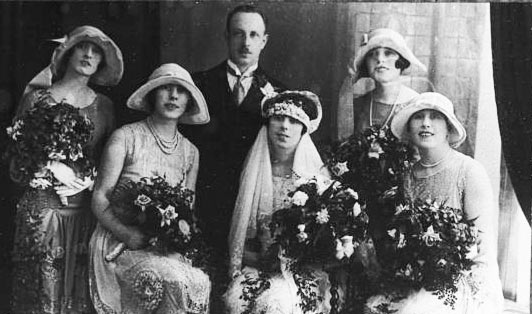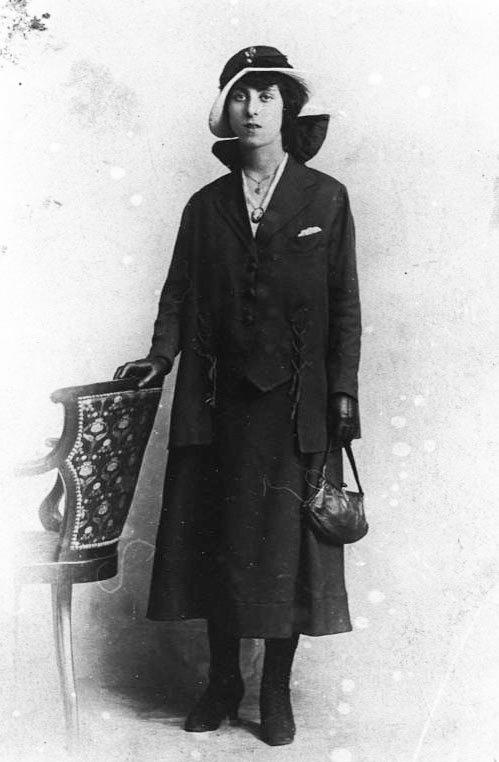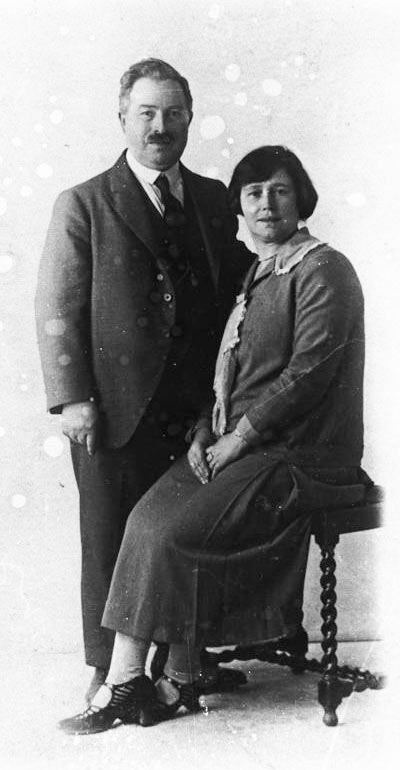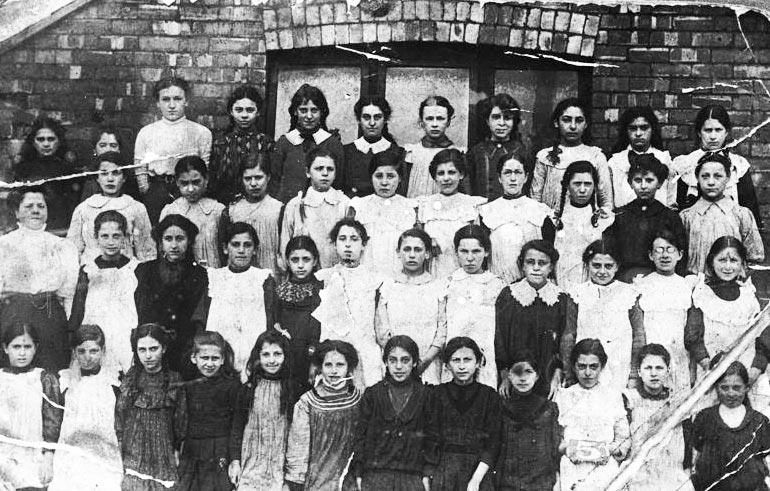Swipe to read
The teachers at Manchester Jews School made Tilly change her name from her traditional Hebrew name Tauba to something more ‘English’ sounding. She tells the story here.
Read Transcript
“Well, I’m known as Tilly Caplan. I was registered Tauba, which is a translation of my grandfather’s name. I was born and they wanted a name. So, they used my name. They used the Hebrew name, and this was a kind of translation and they got it down to a ‘dove’ in Hebrew, which means in German, Jewish, taub is a dove. And so, they name me Tauba. You see, but it wasn’t accepted in school. They said it isn’t a real name. So, a lot of arguments it boiled down to Tilly, which is not really a name anyway. But we were weary of trying to find some name that would be really true. So, when I went abroad, I used to have to put Tauba known as Tilly, so people would call me Tilly.
And this was all because the school didn’t accept?
The school, it was Miss Raphael, and she said ‘Tauba is not a name, you can’t go through life with a name like Tauba. So, ask your mother what she would like.’ I went home and my mother said, ‘You were named Tauba, I would like it to stay that way.’ Well, she wouldn’t accept it … So, I, not liking to argue with the headmistress said, ‘Well, shall I say, Tina?’ So, I went back and I said Mother said ‘Tina, that isn’t a name either.’ ‘Would you like Matilda?’ I said, ‘Indeed not.’ I thought it was a dreadful name. I don’t know why. Anyway, we came to the conclusion that Tilly would be the best. So, Tilly it was.
And what did your mother think of you being called Tilly?
She didn’t call me Tilly but in school I was known on the register as Tilly. But my mother wouldn’t accept it. She said, ‘Tilly isn’t a name.’”
Tilly’s mother was determined that her children would behave in accordance with her orthodox upbringing. Tilly explains this here.
Read Transcript
“My mother was a busy woman. We had six children. And she had her work cut out too, you know, in those days, she was religious. And everything had to be done by Wednesday. Thursday, she was already busy for Shabbos. So that she could be in time you see. So, she didn’t really have lots of time for neighbouring … Funny, but my mother didn’t like us going into people’s houses. And when I once said why she said, ‘cause you learn things there which I’d rather you didn’t’. We once said something, I can’t remember what it was. And she said, ‘that sounds like swearing. You didn’t learn that here. Where do you get that from?’ So I said, ‘the girl in house a few doors up. She always says that.’ So, she said, ‘does she. Well, she won’t say it anymore when you’re there, because you’re not going to be there anymore.’ And she wouldn’t allow. She was always afraid of us learning bad things, bad manners, from other people … My mother always reckoned she came from a good family, you see, so she felt she was a cut above some of the people that she lived with. Because her father was, could have been a rabbi … he used to study in the yeshiva, but he never was named as a rabbi. But he was capable of being. My grandmother was very, very learned. In fact, when her husband died here, she used to teach in Hebrew … So, she was a learned woman.”
When Tilly was 22 she went to America to pursue a romance with a boy. She decided not to stay in America due to her orthodox upbringing. Here she explains why.
Read Transcript
“I went to America when I was very young … I corresponded with a relative who was really a relative of my grandmother’s. So, it was rather far removed from me. And I used to write him. Tell him all about England, all about what it was like … And one day I got a letter saying, how he longed to get these letters. They were beautifully written, and delightful to read. And how wonderful it would be if we could meet. So, I said that would be an impossibility. Because the fare was very high … He wrote me a letter and he said, thinking it over, I wondered if you would like to come and live here … So, I am sending you a cheque which should cover all expenses. And I’m not taking no for an answer … So after a big powwow with the family, I went. There was a terrific do before I went. The town was up with it, you know, everybody says, have you heard she’s going, one said she’s marrying a millionaire!
But when I got there, I thought, I was exchanging one country for another, my roots were here. All my family, school friends, boyfriends, everything was here, was in England, and I’ve left to go there. Except for this boy and family, I knew nobody. So, I became very homesick … Anyway, I didn’t get married. I went to the home first. And when I got there, it was very, so un-Jewish. It’s just not possible. And this is what turned me off. We had a beautiful turkey dinner. And when I said how do you manage to get a shochet here. He said, ‘Oh, we just wring its neck.’ In those days, being so strict, I thought, I thought I’d collapse with a shock … I knew everything to do about religion, so this put me off and I came back … I probably gave up a very wealthy life to come back to England. But I just couldn’t have been happy there … Then I’d come straight from so much orthodoxy. I couldn’t bear the thought of living their life.”
Tilly explains why her mother would not have approved of a non-Jewish or reform husband.
Read Transcript
“There was one man in Ireland … And he was very, very keen. And he used come over. In those days he had a car and he used to come over from Ireland. And I never told my mother because he was a reformed Jew, which to my mother was as bad as being a goy. So, it was never, the family never knew about it. Only my friend, I used to confide in her. I used to say, ‘if they ask you was I with you last night, say yes.’ Because he had come over and he would take me out. And I didn’t dare tell my mother because she would have broken my heart if she thought I was going with a reformed Jew. Because they did everything, you know, like riding on Shabbos and they weren’t very fussy about what they ate.
So was your husband’s background and your own background very similar in that respect?
Yes. Yes I think so. We were neither of us terribly frum but we’re very orthodox. In the house everything was just, just right you know. Just so. But my husband had to work on Shabbas till 12. He used to go to shul on Friday night, but of course he couldn’t go to shul [on Saturday]. I used to have to tell my children, ‘Daddy has gone to shul,’ when they were little. Because I didn’t dare say that Daddy was working.”



